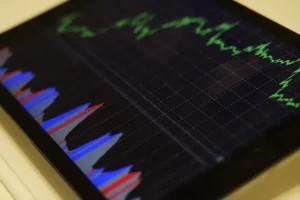Trading on the foreign exchange market has exploded in popularity over the last several years, and with good reason. The foreign exchange market is the biggest financial market in the world, with daily trading volumes reaching well over $6 trillion. This makes the foreign exchange market the most liquid market in the world. Because so much money is at stake, it is essential for traders to have a solid understanding of the significance of effective money management while engaging in forex trading.

What Exactly Is Foreign Exchange, or Forex, Trading?
Trading foreign currency, often known as trading forex, comprises buying and selling currencies with the goal of making a profit from the movement of exchange rates. For instance, a trader who anticipates that the value of the United States dollar will rise in comparison to that of the euro may decide to purchase U.S. dollars and sell euros in their portfolio. The trader will be able to exit their position and book a profit if the market rate of exchange moves in the desired direction.
Why Is Proper Money Management So Crucial When Trading Foreign Exchange?
Money management is essential in foreign exchange trading because it enables dealers to reduce their deficits while simultaneously increasing their potential gains. Traders may guarantee that they will have sufficient capital to continue trading even if they suffer a series of hits if they take the time to properly manage their finances. In addition, proper money management may assist traders in preventing the over-leveraging of their accounts, which can lead to the significant financial detriment and even bankruptcy in extreme cases.
Correct Portfolio Management
When it comes to trading forex, appropriate money management is inextricably linked to effective portfolio management. It entails evaluating the amount of money that a trader is willing to put up on a trade as well as finding the best stop-loss and take-profit levels for that transaction. In addition, it includes determining the amount of capital that the trader is willing to put up on a trade. Traders are able to cut their prospective deficits and secure their gains as a result of this.
Stop-Loss Orders
Stop-loss orders are one of the most significant instruments in foreign exchange trading, and they are especially helpful for portfolio management. Stop-loss orders may limit the amount of money lost in a trade. A stop-loss order is an order to sell an asset if it reaches a specified price, and it is often used to minimize possible depletions. A stop-loss order is an order to sell a security if it reaches that price. If a trader places a stop-loss order, they may guarantee that their deficits are contained even if the market goes in the opposite direction of their expectations.
Take-Profit Orders
Take-profit orders are very similar to stop-loss orders, with the primary difference being that their purpose is to lock in gains rather than minimize depletions. A take-profit order is an order to sell an asset if it reaches a specified price, and it is often used to lock in gains and take advantage of favorable market moves. A take-profit order is also known as a stop-loss order.
Position Sizing
When it comes to effective money management in forex trading, position size is another crucial component to keep in mind. It entails estimating the amount of a transaction in accordance with the trader’s account size and level of comfort. Traders can keep their accounts from being too exposed to hazards and make sure their portfolios are well-balanced by making sure their transactions are the right size.

Diversification
When it comes to effective money management, diversification is one of the most important components. It entails distributing one’s assets among a number of different trading techniques and currencies, which may help reduce the hazard associated with the potential deficit of a single transaction or investment. Traders are able to guarantee that they are not placing all of their eggs in one basket and that they are spreading out their portfolios by diversifying the assets that make up those portfolios.
The Importance of Having a Business Strategy
Another essential component of effective money management in forex trading is having a clear and well-thought-out trading strategy. A trader’s objectives, hazard tolerance, and investing techniques should all be included in their trading plan, and the plan should also give a structure for the trader to follow while making choices under pressure. A solid trading strategy should also contain a set of rules for entering and leaving transactions, as well as for managing money. These rules should be included in the plan. Traders may guarantee that they are adhering to their tactics and making reasonable judgments, even when the market is turbulent, so long as they follow a trading strategy that has been carefully established and adhere to it.
Discipline
When it comes to effectively managing one’s financial resources in forex trading, discipline is another crucial component. In spite of the unpredictability of the market, it is essential that traders maintain their sense of discipline and stick to their trading strategy. This involves avoiding hasty choices and sticking to their strategy, even when the market isn’t moving in their favor, in order to maximize their chances of success. Traders who keep their discipline may protect themselves from making expensive errors and guarantee that they will continue to pursue their financial objectives.
Emotional Control
Controlling one’s emotions is essential in the forex market since a trader’s feelings may often obscure their judgment and cause them to make hasty choices. It is essential for traders to be conscious of their feelings and to refrain from allowing those feelings to influence their judgments. This may be performed by using practices such as meditation or mindfulness as well as by keeping one’s mind clean and centered throughout the process, and it’s something that can be done. Traders can guarantee that they are making reasonable judgments and staying true to their financial objectives if they are able to maintain control of their emotions.
Goals for the Long Term
The formulation of long-term objectives, and continued progress toward achieving those goals, is another essential component of effective money management in forex trading. Traders should have a long-term perspective for their investments rather than merely concentrating on the earnings that may be made in the near term. This involves working toward these objectives on a constant basis, such as by gradually increasing their money or the size of their trading account. Goals like this are attainable and should be established. Traders may guarantee that they are making choices that fit with their investment objectives and that they are generating wealth over the long run by maintaining a focus on the long term and the implications of those actions.
Education and Professional Experience
Last but not least, it is essential for traders to continue their own education and to consistently exercise their talents. Since the foreign exchange market is always changing, traders need to ensure that they are always up to speed on the most recent market trends and changes. This may be performed through reading books and articles that are pertinent to the topic, going to seminars and webinars, and practicing using a sample account. Traders may be more likely to be successful and reach their investing goals if they stay committed to learning new things and getting better at what they already know.

In Conclusion
Efficient money management is vital in foreign exchange trading, as it enables traders to reduce the amount of hazard they take on while simultaneously increasing the amount of profit they make. Traders can ensure that they are making informed decisions and achieving their investment goals by utilizing trading tools such as stop-loss and take-profit orders, proper position sizing, diversification, a clearly defined trading plan, discipline, emotional control, a focus on the long term, and ongoing education and practice. By following these rules, traders can increase their chances of being successful and making money in the long run on the foreign exchange market.
Read more investing news on PressReach.com.Subscribe to the PressReach RSS feeds:- Featured News RSS feed
- Investing News RSS feed
- Daily Press Releases RSS feed
- Trading Tips RSS feed
- Investing Videos RSS feed
Follow PressReach on Twitter
Follow PressReach on TikTok
Follow PressReach on Instagram
Subscribe to us on Youtube





